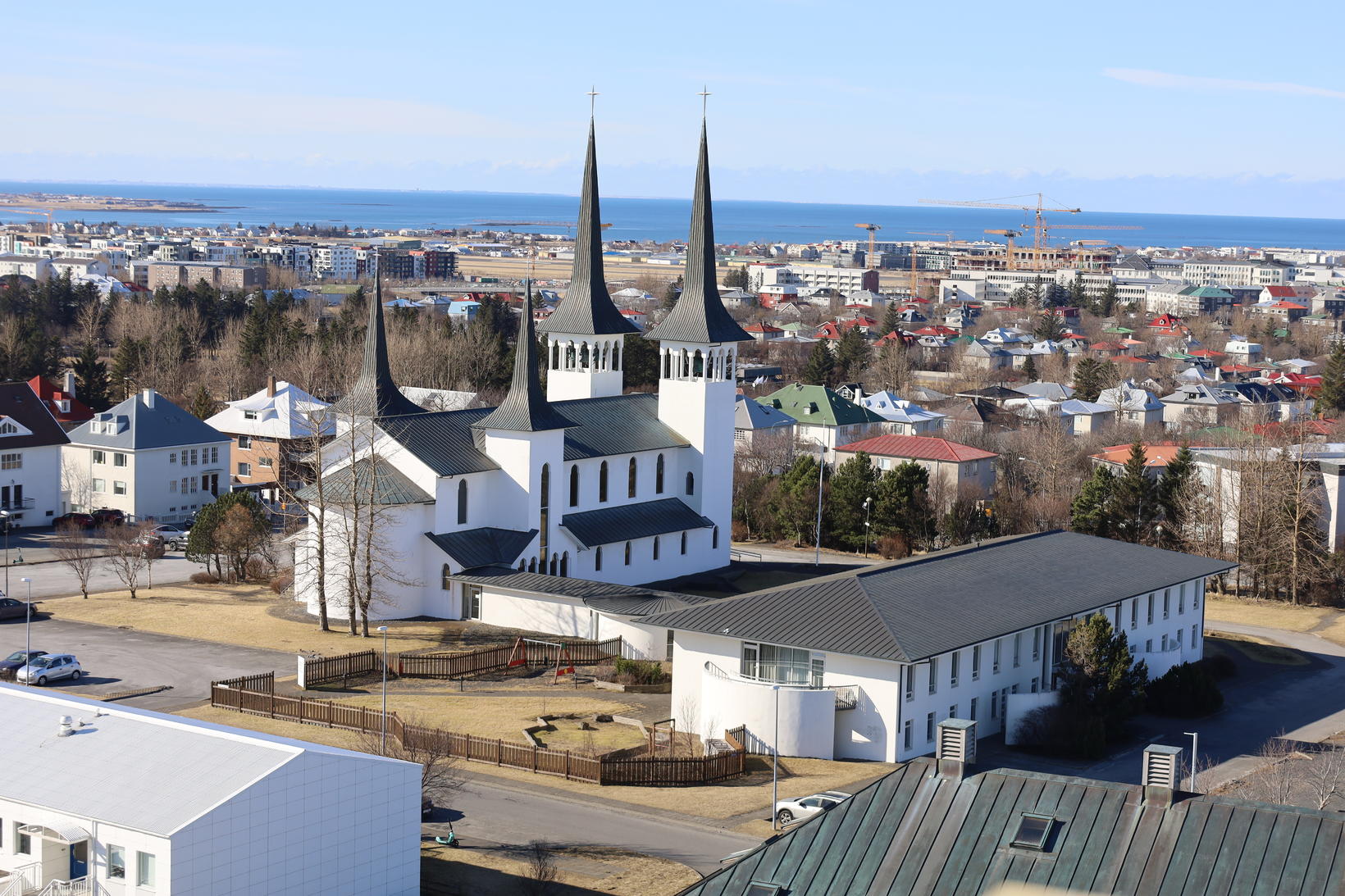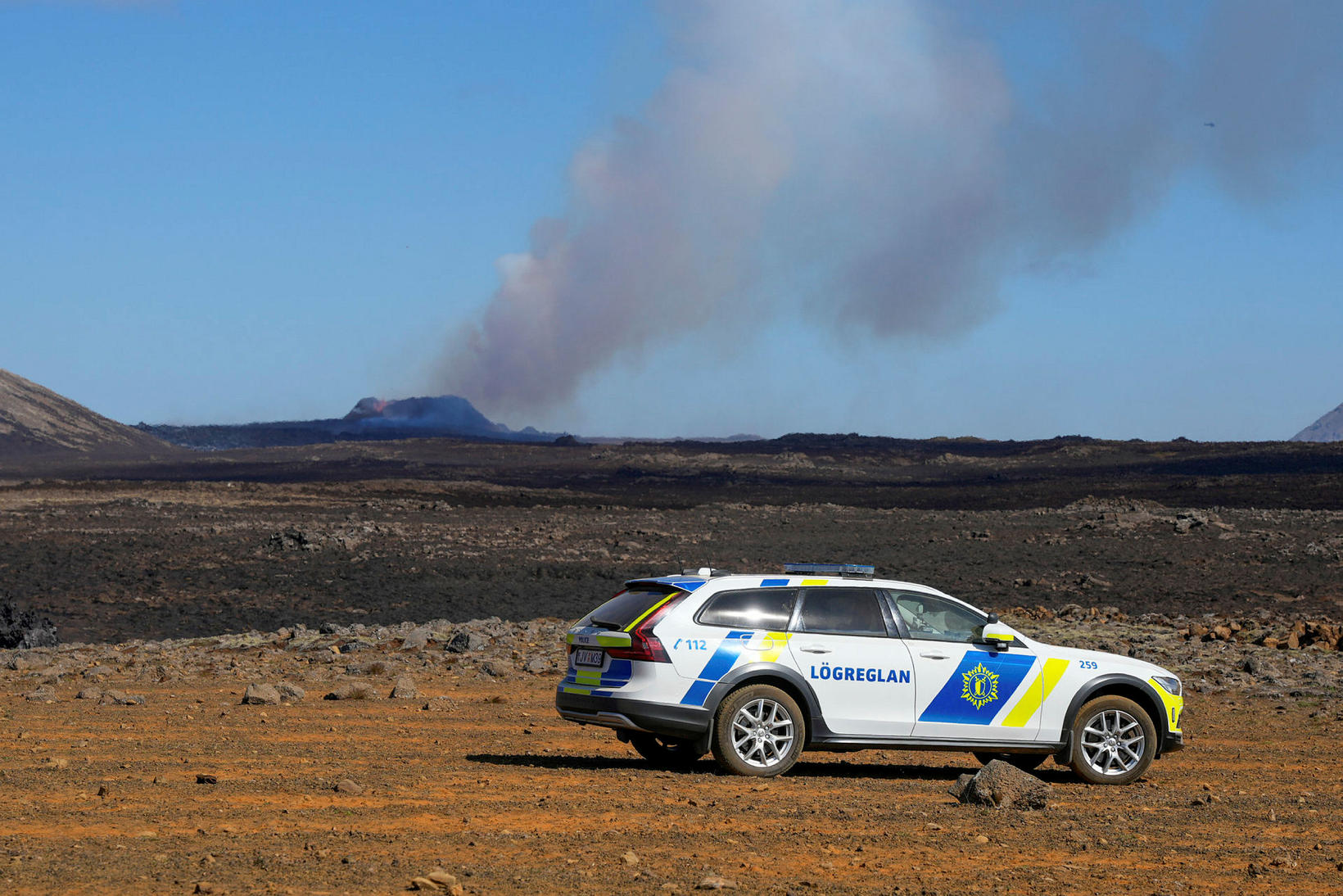The eruption impacting air quality
The air quality is moderate today, with a rise of fine particles stemming from the volcanic eruption in the Reykjanes peninsula. Morgunblaðið/Sigurður Bogi
Air quality in the capital area is worse today than in recent days and measures fairly good according to the standards of the Environment Agency. It has also been fairly good at Keflavík International Airport and at Reykholt.
Ragnhildur Finnbjörnsdóttir, an expert at the Environment Agency, says that it stems from the volcanic eruption at Litli-Hrútur.
Then, at noon today, the Reykjavík Health Department made an announcement about a volcanic mist that is hovering over the capital, mixed with foggy air.
“Volcanic mist can cause drooling, headaches, eye and throat irritation, as well as flu symptoms. Respiratory - sensitive individuals, and children should try to avoid the outdoors for extended periods of time and limit exertion. Less sensitive individuals may experience symptoms as well. It is not recommended to have young children sleeping in prams outside in these conditions,” the notice reads.
Sensitive people urged to stay inside
“Normally we’re just seeing a slight increase in the level of coarse particulates, but now there’s been a sharp rise in fine particulate matter, indicating that the eruption is a contributing factor to the deteriorating air quality.”
When air quality is moderate, sensitive individuals may experience respiratory discomfort and cough. It may also cause irritation or irritation to healthy individuals.
Sensitive individuals and those with pre-existing conditions are encouraged to avoid outdoor exercise, to follow measurements and be careful.
Infants should not sleep outside in a pram
Older children should not exert themselves outdoors, and infants should not sleep outside in prams. It is recommended to turn off ventilation while air quality is moderate.
“We encourage those with respiratory problems such as asthma to have extra doses of medication and monitor the status of air quality.”
"Clearly not good for anyone's health"
Finnbjörnsdóttir says the distribution of suspended particles depends on the direction of the wind, but it has been difficult to measure exactly where it will find its way due to the direction of the wind.
“This is definitely not good for the health of anyone, but fine suspended particulates actually have much worse effects on air quality than the crude suspended particulates that are usually measured.”
The status of air quality can be monitored on the website at loftgaedi.is.



/frimg/1/57/93/1579337.jpg)
/frimg/1/57/94/1579405.jpg)




